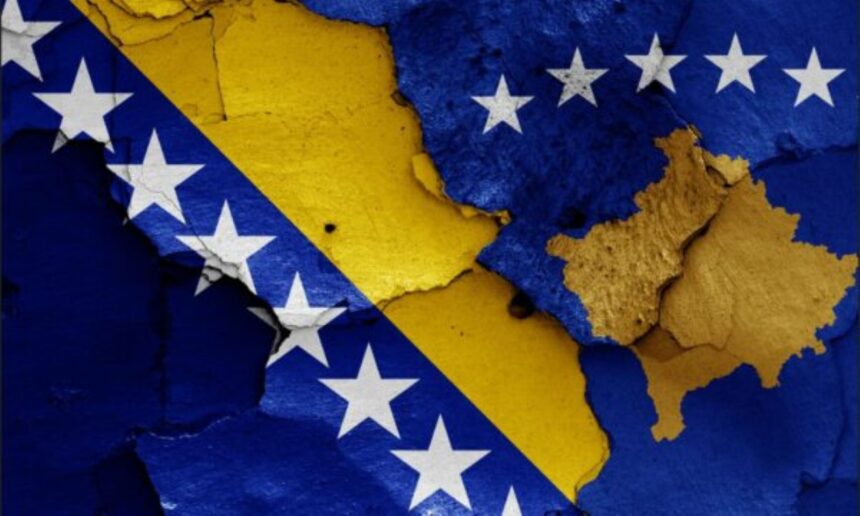Nearly three years after signing a mutual recognition agreement for national ID cards under the Berlin Process, citizens of Kosovo still cannot travel visa-free to Bosnia and Herzegovina (BiH) — due to continued opposition from Serb representatives within BiH’s state institutions.
Sharing her own recent experience, Kosovo’s Acting Deputy Prime Minister, Emilija Rexhepi, described the visa process as burdensome and costly for citizens.
“I recently visited Bosnia for the 30th anniversary commemoration of the Srebrenica genocide and barely managed to obtain a visa for just a few days. This is a major concern and a financial burden for our citizens,” Rexhepi told TV Dukagjini.
She expressed hope that ratification will happen soon, despite the complex political landscape in Bosnia. Bosniak and Croat representatives are expected to raise the issue in the House of Peoples this September, aiming to push for a vote and overcome Serb resistance.
“We are in constant communication with Foreign Minister Elmedin Konaković, who promised to propose visa removal for Kosovo citizens in the Council of Ministers and to open the way for parliamentary ratification. Serb representatives remain strongly opposed — despite having signed the agreement themselves in Berlin — but we hope Bosniaks and Croats can finalize this process,” Rexhepi emphasized.
However, Amir Purić, a Member of the Federal Parliament of BiH, offered a more pessimistic outlook:
“It’s unrealistic to expect ratification within the next year or two. Given the political gridlock at the state level, only rare technical decisions are made. No significant issues will likely be resolved before the end of 2026, when the next elections take place,” Purić told TV Dukagjini.
Rizah Sokoli, head of the Dardania Association in Bosnia, pointed out that the Albanian community suffers most from the continued visa restrictions.
“For example, my brother in Kosovo has repeatedly been denied a visa. Bosnia could follow Greece’s example: although Greece does not recognize Kosovo as a state, it accepts Kosovo documents. Bosnia will eventually have to accept the reality that Kosovo is an independent, sovereign state, fully committed to regional economic integration and eventual UN membership — a process that cannot be stopped,” Sokoli stated.
The Government of Kosovo told the media that it is “actively working and encouraging Bosnia and Herzegovina to fulfill its obligations.”
Meanwhile, Kosovo unilaterally lifted its visa regime for Bosnian citizens on January 1 this year, but the Republika Srpska entity, under Milorad Dodik’s leadership, continues to block reciprocal steps.







